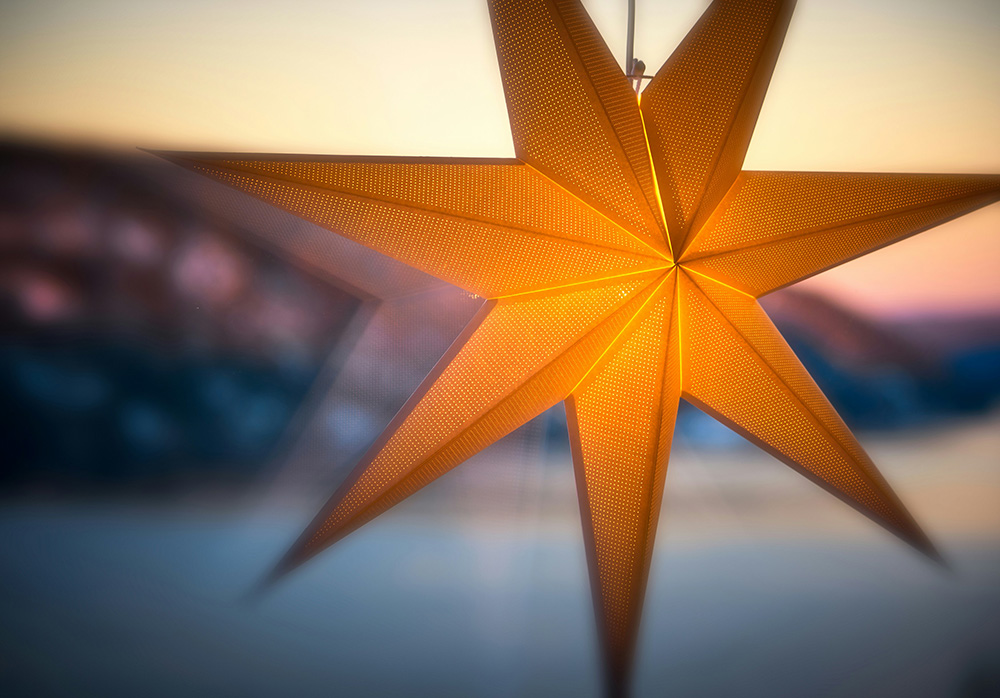
(Unsplash/Vidar Nordli Mathisen)
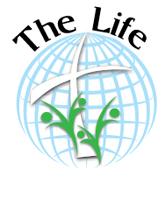
Welcome to our eighth year of The Life, featuring a panel of 20 sisters who will reflect on issues that impact the lives of Catholic women religious around the globe.
We chose a panel from more than 65 applicants from around the world who reflect a diversity of ages, nationalities, religious congregations, ministries and charisms. They'll take turns writing responses to a prompt or a question about spirituality, religious life and other topics.
Our panelists this year have ties to or have worked in: Ireland, Nigeria, Australia, Kenya, India, Tanzania, Singapore, Ecuador, Philippines, Botswana and the United States.
The panelists serve in various roles across educational, pastoral, administrative and community-focused ministries. We will hear from a contemplative nun, a university lecturer, a resource mobilization expert, a social activist and a counselor, among others. Meet all of the new panelists here.
A panel as diverse as this will surely enrich our understanding of "the life" God has called them to.
Read the responses of this month's panelists to the prompt: Thinking about the reality of our world — drawing from your experiences — write a personal reflection, commentary or meditation on the theme of Advent.
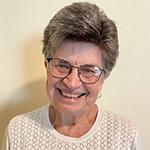
Pat Farrell, a native of Iowa and Franciscan Sister of Dubuque, holds a bachelor's degree in English and a master's in social work. Her early ministry included religious education and teaching in rural Iowa, followed by pastoral work and community organizing with the Hispanic community in San Antonio, Texas. Twenty-eight years in Latin America — first in Chile during the dictatorship, then in El Salvador's civil war, and later in Honduras — ignited her lifelong commitment to peacemaking, human rights, and trauma healing. She also provided psychotherapy to immigrant and refugee groups in Chicago and in Omaha, Nebraska. She served as president of the Leadership Conference of Women Religious from 2011 to 2013, a critical period during its Vatican assessment. Currently, she lives in Okolona, Mississippi, where she serves as spiritual director and does volunteer work.
Advent? Already? The change of liturgical season startles a bit, doesn't it? Advent, especially, can sneak up on us in the wake of Thanksgiving.
We may have just had awkward conversations with relatives over the holiday, leaving ominous political differences hanging in the air. End-of-year deadlines begin to stare at us. World news remains bleak. Even the late autumn weather can feel dark and heavy.
Then suddenly, here comes Advent. It stops us in our tracks. It holds a mirror to our pessimism and invites another look at life, even when little within or around us might inspire a positive outlook. Advent calls us to hope.
So, Advent? Already? Thank God! It reminds us that what we see is not all that there is.
Do not remember the former things,
or consider the things of old.
I am about to do a new thing;
now it springs forth, do you not perceive it?
I will make a way in the wilderness
and rivers in the desert.
The prophet's wake-up call dares to announce that there is something more, impatiently suggesting that we can't even perceive it. Not yet.
Advent insists that there is a freshness, a newness on the way. The Divine Presence is rising up from within us and from within all creation. The Divine Presence is summoning us forward from the future, making a way in the wilderness of our messy world and our messy lives, where no path forward is yet visible.
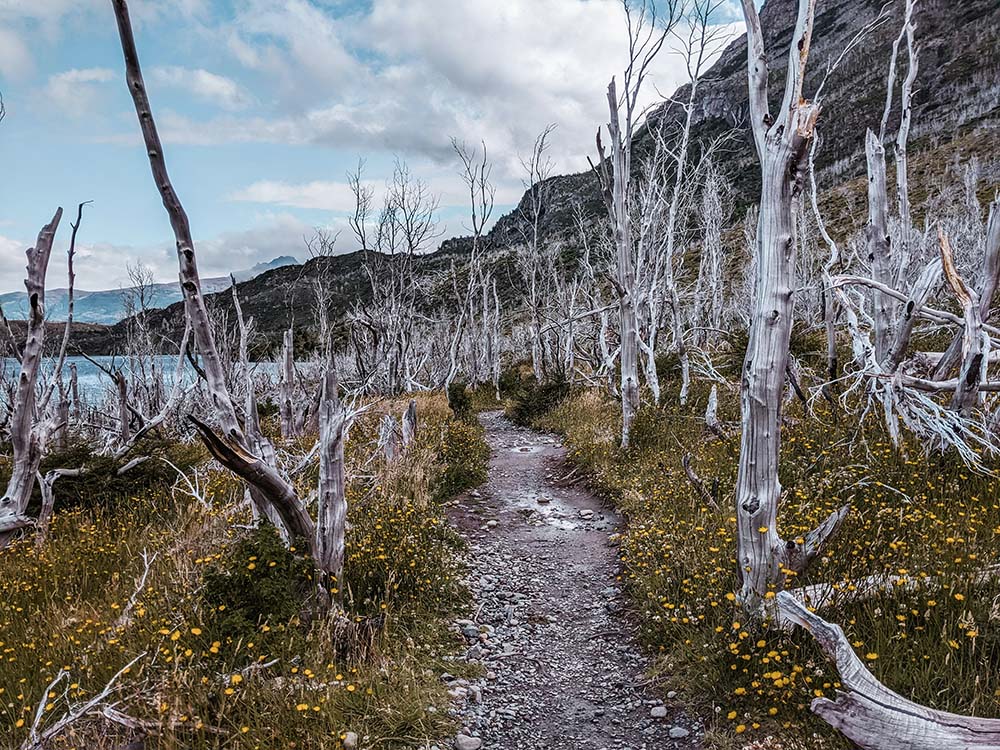
Torres del Paine National Park, Chile (Unsplash/Anqi Lu)
Personally, I hear this Advent summons with the ears of a recently returned Latin American missioner stepping back into the world that first shaped me. Reentering U.S. culture at this point in history has been nearly as challenging as my first foray into Chile in the throes of dictatorship.
The path forward in our country, our church, and in religious life is indeed unknown, a foreign territory, a wilderness, a desert. Many of the former things I have found life-giving in my Franciscan congregation are no longer viable. It is time for something new, as we lay aside structures, customs, buildings, and even relationships with so many incredible mentors and models who have already gone before us.
Given the current context, I am especially grateful for Advent's sudden intrusion this year. Can I perceive God's movement? I get glimpses of what's springing forth in our sisters' tender care for each other in our diminishment. The courage to walk into an unknown future has always been there, and the desire to be faithful to the Gospel remains at the center. Yet God is doing something genuinely new. Advent urges more attentive expectation.
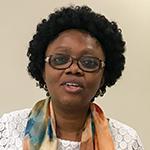
Anne Arabome is a member of the Sisters of Social Service in Los Angeles with Nigerian origins and naturalized U.S. citizenship. She previously served as associate director of the Faber Center for Ignatian Spirituality at Marquette University. In 2024, she relocated to Windhoek, Namibia, where she founded and directs the Sophia Institute for Theological Studies and Spiritual Formation. She is also directing the project of theological studies and intercongregational living in Scotland under the auspices of CORLIN. A faith-filled Catholic woman religious, she is deeply committed to ministry, social justice and scholarship, focusing on the spiritual lives of African women and Ignatian spirituality. She holds a doctorate in systematic theology and a Doctor of Ministry in Spirituality.
A characteristic feature of Advent is that we are invited to slow down. It is a moment to pay attention and listen more deeply to the presence of God, who is and is to come. Advent is a time to pause, to reflect and to quiet our hearts into stillness and silence. It is a time to contemplate and take a long, loving look at the real.
In this context, I have often thought of my own aging and diminishing community of sisters. The act of slowing down and pausing is not an option; it is a fact of life for them.
In his Advent message for 2023, Pope Francis reminded us to quiet our hearts with an "expectation filled with affection. ... In fact, keeping watch means keeping the heart ready. It is the attitude of the sentinel, who in the night is not tempted by weariness, does not fall asleep, but remains awake awaiting the coming light."
This season is a beautiful reminder of how we can truly be present to every moment and experience of our lives. It is a way of waiting on the Lord.
A quote attributed to St. Ignatius says: "Don't get ahead of God's graces." The Rev. Mark Wimmer insightfully comments on those words: "God's grace existed in the past. It is present now. Is there any reason to believe it won't be in the future? The anxieties of tomorrow will be met by God's graces — of tomorrow." Advent is a way of not getting ahead of God.
Yet these simple graces are challenged by the tumultuous nature of our times as a nation and as a global society. These days, our world is mired in the darkness of war and violence; populism and nationalism; climate change and socioeconomic inequities; and so much pain, loneliness and isolation. In fact, these times resemble the biblical times of exile, lamentation and longing, when people cried out: "How long, O Lord, how long?"
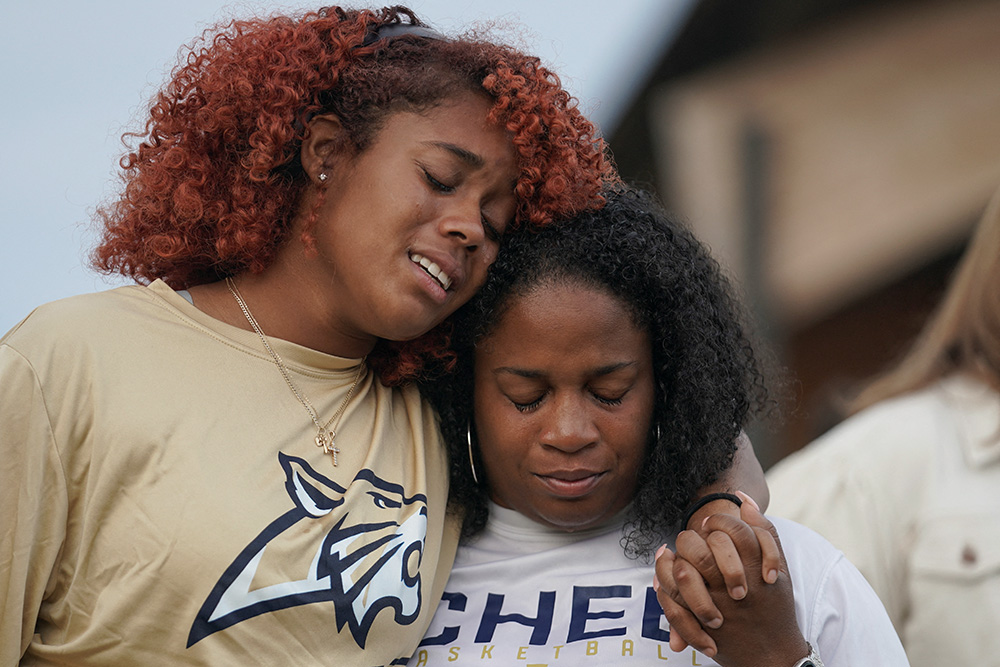
Women mourn as they attend a vigil at Jug Tavern Park in Winder, Ga., Sept. 4, 2024, following a shooting that day at Apalachee High School in Winder. (OSV News/Reuters/Elijah Nouvelage)
Times such as these give a deeper meaning and greater urgency to Advent as a season of longing, when we pray: "O come, O come, Emmanuel ..."
Yet, in the midst of our exile, lamentation and longing, our faith reassures us that God is with us, even in the most challenging times. Advent is a moment of consoling awareness that God has looked down on Earth with compassion, has pitched a tent in our midst, and now walks with us. Yes, God is with us; Emmanuel is here, even as we yearn for the grace of a fuller consciousness of what God is doing in our midst in this time of crisis.
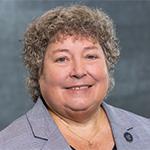
Ellen Dauwer is a Sister of Charity of St. Elizabeth of Convent Station, New Jersey, currently living in Chicago. She spent 20 years in higher education, teaching educational technology and serving in administration. She has served in congregational leadership and most recently served as executive director of the Religious Formation Conference for two terms. She is currently engaged in governance in several ministries and teaching, speaking and writing.
Advent is an in-between time that invites us to dwell in both the now and the not-yet. God's dream for the world is here among us, while we also yearn for its full realization. The season reminds us that all of life is in-between: We live the concrete reality of our lives while also seeking and dreaming to transcend its boundaries and impediments.
Living in a northern city of the United States, I enter into Advent near the intersection of autumn and winter. During this time, the hours of sunlight wane and winter winds send the leftover warmth of autumn days scurrying.
Advent is an early winter gift that gives us a long view of life and teaches us patience in the process. As our ancestors in the faith journeyed in desert days in search of the promised land, we too sojourn through the dailiness of our lives hoping for a glimpse of the reign of God.
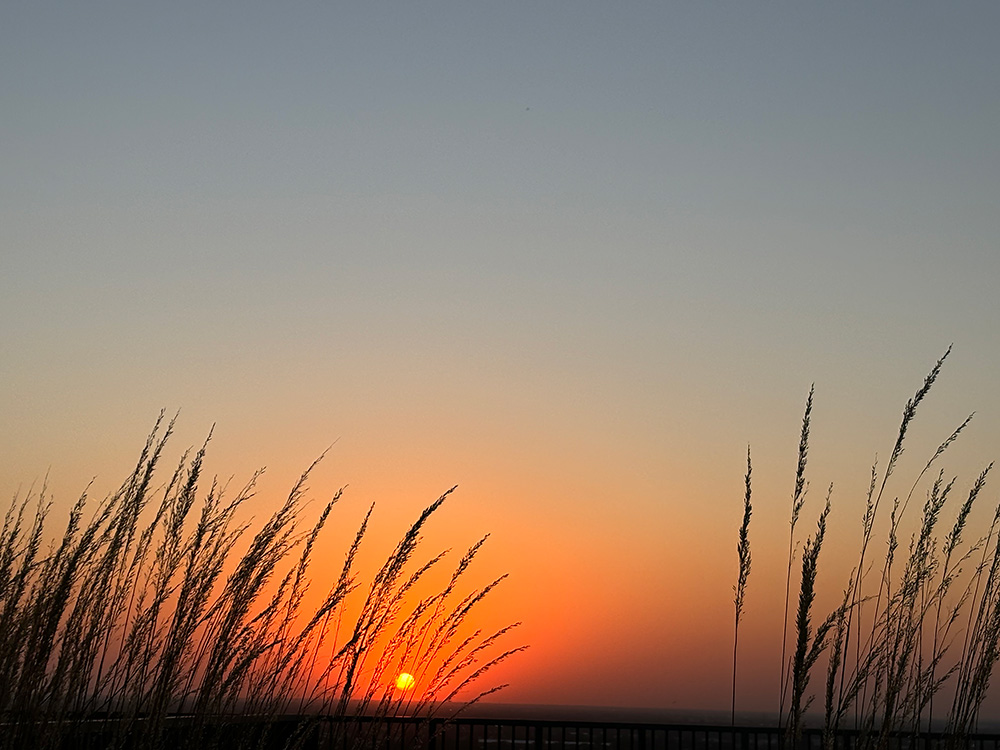
Sun sets over Chicago's autumn skyline, Oct. 5, 2024, as fall days grow shorter. (Ellen Dauwer)
Religious life is in Advent days, replete with diminished daylight and the stark outlines of bare deciduous trees. Many of our congregations no longer have fields overflowing with produce to consume and share. Yet, in the cycle of life and the pascal mystery, we are promised new life in abundance, born from and nourished by the humus of seasons past. It is somewhere between the days of harvest and those of new life.
How might we survive and thrive in Advent? I suggest three resources for our journey's backpack: patience, hope and a long view. Patience enables us to live in the present peacefully without counting the steps along the way. Hope energizes us with a promise that there's more to life than what we see today. And the long view helps us to look ahead and around to see the whole.
All three bring us out of ourselves, thus changing our center of gravity and even bringing us out of balance a bit.
One of the joys of my current ministry is accompanying novices in intercommunity novitiates as they explore the history of religious life. Together, we take a long, loving look over our shoulders at the centuries that have preceded us: the joys and struggles of religious women and men as the life evolved. Then, with the story of the journey at our backs, we peer into the future with a mixture of curiosity, hope and yearning.
How will religious life be a prophetic presence in the church in days to come? How might we prepare for tomorrow while our feet are still in today? Advent gifts of patience, hope and the long view give us a place to start to ponder these and other deep wonderings of this in-between time.
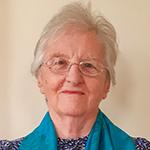
Rebecca Conlon, from Ireland, is a member of the Missionary Sisters of St. Columban. She began her mission in Korea as an occupational therapist before transitioning to congregational services including formation. After spending 33 years in Pakistan, where she worked pastorally with the Christian community and engaged in a dialogue of life and work with Muslims, she is now adjusting to life in Ireland. Dialogue was central to her mission approach. Additionally, she served on the Congregation Central Team for the past six years while residing in Pakistan.
This Advent 2024 seems to have a different flavor from any other. It seems that we are all confused in a bewildering world as wars escalate despite efforts at peace, including protests, international delegations for ceasefires, and prayer.
In Europe, we have the war between Russia and Ukraine, resulting in meaningless destruction and horror. In the Middle East, the war is escalating between Israel and Palestine and spilling out in all directions.
Refugees all over the world are fleeing and seeking shelter and hospitality, which can be in short supply — as we know from the "flight into Egypt" — and we, too, experience this reality on our own doorsteps today.
Mother Earth is suffering with floods, droughts, and famine of massive proportions due to global warming.
Where do we start? Where do we find hope? What kind of future are we handing on?
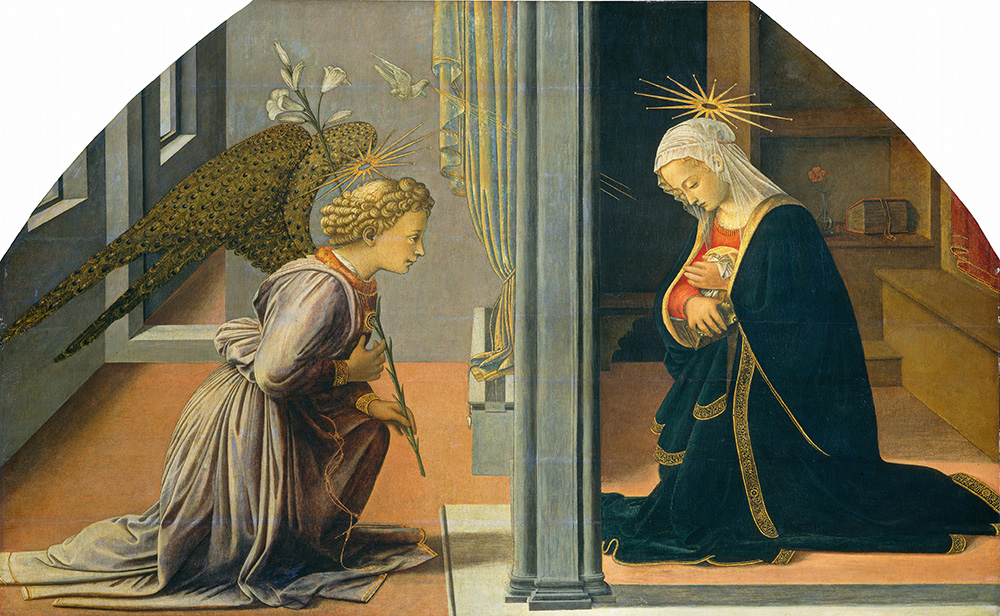
"The Annunciation" (circa 1435-40) by Fra Filippo Lippi (National Gallery of Art)
When I was a novice, the book The Woman Wrapped in Silence by Fr. John Lynch was a bestseller — a classic epic poem about Mary's response to God's intervention in her life. We sat piously with Mary wrapped in silence as she walked around the dusty roads of Palestine, wondering about what God had asked of her and pondering many things in her spacious heart, open to God, while waiting.
I think we can resonate with her now, wondering, pondering and waiting for a glimmer of hope, trying to believe that the light will overcome the darkness in our fractured world. We look helplessly at the women of Palestine on our screens, totally bewildered. Mary was bewildered and "perplexed," asking, "How can this be?" and then the Scripture tells us that "the angel left her." Now she had to allow God to lead her outside of her comfort zone onto a countercultural path at great cost.
Jessica Powers wrote about Advent:
I wait in Mary-darkness, faith's walled place,
with hope's expectancy of nativity.
As we approach Advent, we hold our splintered world as the cradle, knowing that the Word who pitched his tent among us promised to be with us always. His presence is everywhere. Let us mindfully listen for his steps.
Richard Rohr constantly reminds us that we are to welcome the Universal Christ, the Cosmic Christ, the Christ who is forever being born in the human soul and into history. This is the mystery we need to make room for and why we need to wrap ourselves in silence, to be quiet enough, as Tagore says: "Have you heard his silent steps? He ever comes, every moment, every age…" Let's nurture this mystery and be led.
Come, Lord Jesus, come.
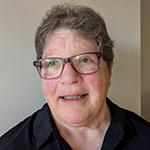
Theresa Keller has been a Franciscan Sister of Perpetual Adoration for 45 years. She holds a Doctor of Nursing degree from Rush University and a Master of Public Affairs degree from the University of Minnesota's Humphrey School. A dedicated U.S. Public Health Service provider, she has served in federally qualified community health clinics across rural Missouri, Iowa and Minnesota. Her career spans nursing education, administration and primary care, with a passion for mentoring. Currently, she works in community organizing for justice and peace and is a core member of Gamaliel's Nun Caucus.
While going through dark times in her life, a friend of mine whispered, "They tell me there is always light at the end of the tunnel." She paused her whispering voice and then quietly questioned, "What if the light at the end of the tunnel is the train coming at me?"
Her question was likely pondered by the wise visitors tracking the eastern star. They had read the signs of the times — the rising star in the east — and, following it, were completely uncertain of what they would find. The companionship of the wise visitors did much to quell the fears of uncertainty, as friendship calms the fears of the future.
Advertisement
During the days of Advent, religious life professes to read the signs of the times and follow the rising star. Today, in this Advent, religious life walks the tunnel of darkness, with a desire to turn back, feelings of angst among decision-makers and the longing for a savior. Many religious, like my friend, wonder if the light threatens us or if the journey is too long, too far from home.
The wise religious women know this moment in time is not the first challenge or opportunity; the wisest know all is gift. The darkness of Advent spreads through religious life with the crisis of leadership roles, aging members, loss of institutions, uncertain legacies, and the decline of the common good. With all that darkness, how will religious life even move forward?
As my friend questioned, "Is the light at the end of the tunnel a train?", I wished I could have alleviated her fear and said something profound, but what I repeated to her came from a wise religious woman. I said to my friend, "What do you hear?"
This Advent, as a Midwesterner raised on the Great Plains, I feel in my bones the changing season, diminishing daylight, and I listen to the distant star. This Advent, I reflect on the questions of the wise visitors. I hope religious women ask similar questions of each other this Advent, starting with, "What do you hear?"







